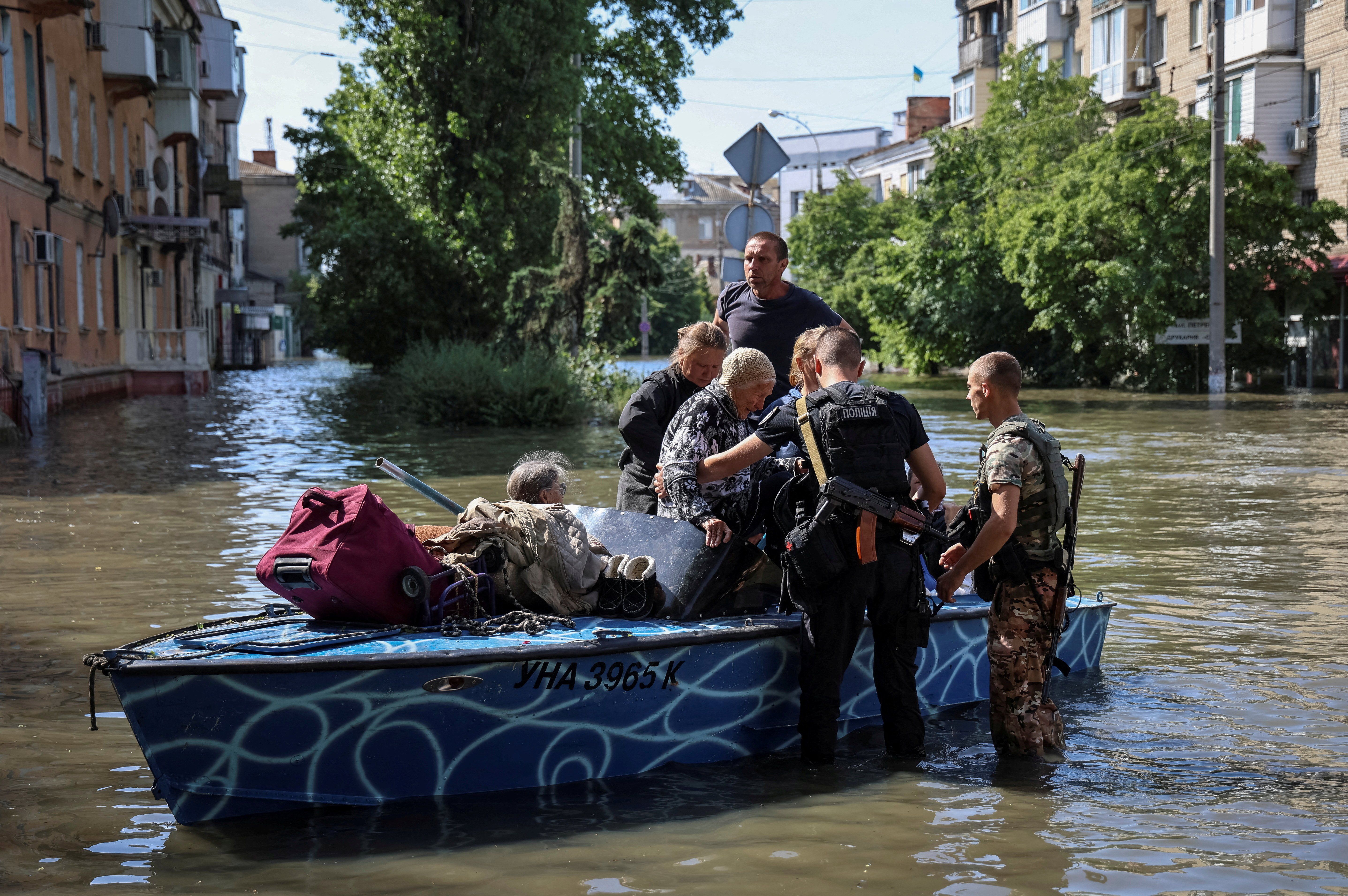So far the only good news about Tuesday’s breach of the Russian-controlled Nova Kakhovka dam in southern Ukraine is this: Experts say the Russian-occupied Zaporizhzhia nuclear plant, which relies on Kakhovka reservoir water for cooling, is not in immediate danger of meltdown.
Beyond that, it’s all bad: Flooding will affect some 40,000 people in areas controlled by both Russia and Ukraine, and ecological disasters loom. Meanwhile, global grain prices ticked up on Tuesday on fears about the fate of vast swaths of grain-producing land in the area.
But who did it? The accusations continue to fly, with little dispositive evidence.
Kyiv says: Russian forces blew the dam to halt the advance of Ukrainian troops who are island-hopping up the Dnipro River as part of Kyiv’s counteroffensive. A good enough motive in principle, even if some experts dispute the battlefield benefit to Russia. And Moscow certainly had the means – they’ve controlled the dam for months. But the flood waters are now inundating large areas of Russian-occupied land too, though local officials have made surreal claims to the contrary. If Russia is worried enough about the counteroffensive to take this kind of step, then that’s a story by itself.
The Kremlin says: Kyiv blew up the dam in order to reduce the supply of water to Crimea from the Kakhovka reservoir. Kyiv has, in fairness, repeatedly cut Crimea’s water since Russia annexed the peninsula in 2014. But for Ukrainian sappers to gain access to the Russian-controlled dam would be an extraordinary thriller plot. What’s more, would Ukraine really be willing to drown its own counteroffensive and destroy thousands of square miles of its own territory just to make Crimeans thirsty? Hmm.
A third possibility? Some experts have suggested the possibility of a structural failure at the dam, which was damaged during fierce fighting last fall and which appeared to show signs of accelerated decay earlier this week. Record high water levels in the Kakhovka reservoir certainly would not have helped matters. But even a structural collapse would still be Russia’s responsibility – it’s the occupying power, and civilian infrastructure is protected by the laws of war.
The White House wades in: Washington on Tuesday said publicly it wasn’t able to determine the cause of the breach, although one anonymously sourced report suggested the Biden administration might declassify evidence that pointed to Russia.
Upshot: Stay tuned and wait for more evidence.